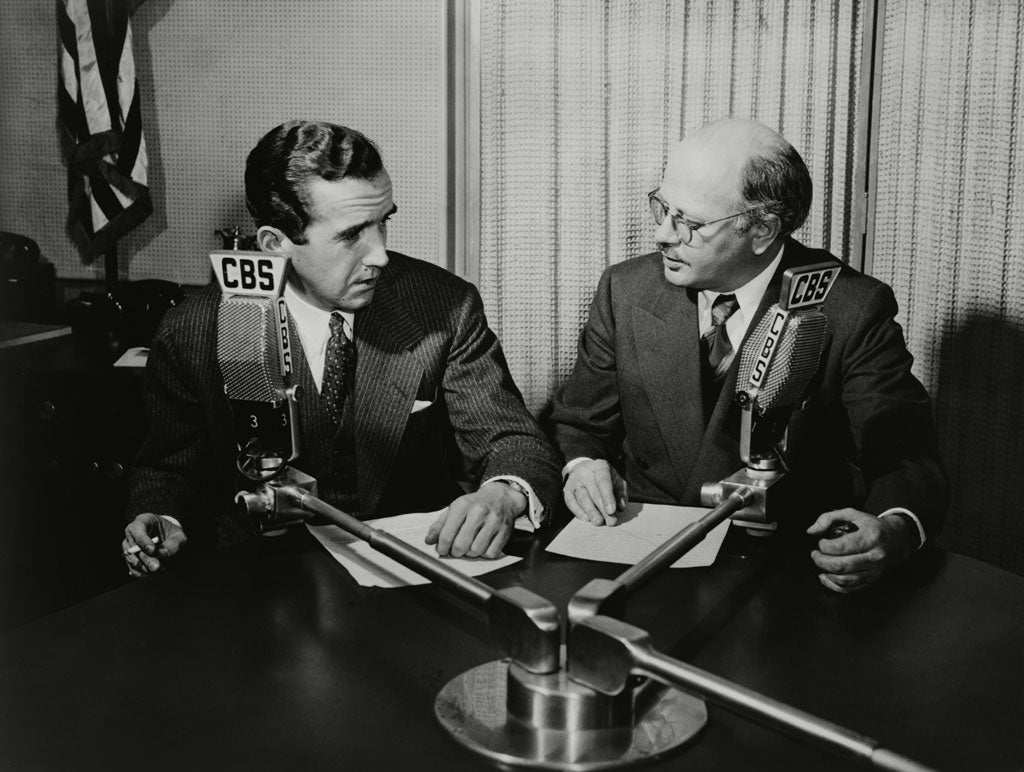The Long Night, By Steve Wick

Besides helping to define the role of the modern foreign correspondent – he witnessed mayhem in 1920s Afghanistan, befriended Gandhi and charted Germany's descent into madness – the American reporter William L Shirer gave hope to every journalist dreaming of writing that ever-elusive Big Book. It was only after being dropped by CBS in 1947, and struggling to make ends meet during the McCarthy era (his staunchly liberal views had attracted the attention of the witch-hunters) that he embarked on his 1,200-page epic, The Rise and Fall of the Third Reich. Losing his job was, in hindsight, a blessing
Curiously enough, Steve Wick – a senior editor on Newsday – devotes little space to the writing of Shirer's bestseller in this biography. His own narrative tapers off in 1940, when Shirer, weary of battles with the German censors, and fearing arrest by the Gestapo, returned to America. A postscript skims through the remainder of his career: he died in 1993, aged 89.
Shirer himself gave a full account of the post-war years in his rambling yet often poignant third volume of memoirs, Twentieth Century Journey. Still, it is a pity Wicks does not go into more detail. Shirer, after all, never recovered from what he saw as his betrayal at the hands of long-time friend and boss, the legendary Ed Murrow, accusing him of succumbing to corporate and political pressure.
Murrow, for his part, claimed that Shirer was simply taken off the air due to falling ratings. Was Shirer a victim of politics or mere statistics? All we can be sure of is that the two men's long friendship fell apart, and even when Murrow was dying of cancer, his old colleague spurned reconciliation.
Wicks does an efficient job of summarising Shirer's years as a roving reporter before the Second World War, even if he does not add much to the insights gleaned from his subject's own books, most notably Berlin Diary. Raised in Iowa, Shirer first came to Europe in 1925, sailing on a cattle ship on which he paid his way by shovelling manure overboard (ideal preparation, some might say, for a life in journalism). On the copy desk of the Chicago Tribune's Paris edition, he worked alongside James Thurber, bumped into Hemingway and James Joyce, and carried a drunken Scott Fitzgerald home after the novelist staggered into the newsroom one night.
In 1937 Murrow signed Shirer up to help run CBS's fledgling European bureau. When Germany annexed Austria, the recruit flew from Vienna to London to anchor the network's first short-wave radio round-up. Even in the age of Twitter, the tapes make fascinating listening. Academics may be condescending towards The Rise and Fall..., but Shirer's eye-witness testimony remains invaluable.
His greatest scoop came in 1940 when, from a clearing at Compiègne, he broke news of the French surrender. Wick brings the episode to life. There is wry humour, too, in his description of Shirer's visit to the Polish front, when the Nazi propaganda ministry obliged him to share a room with a young American described by officials as "a Fascist on a fact-finding mission". The interloper, a representative of the anti-Semitic broadcaster Father Coughlin, was Philip Johnson, much better known in later years as one of the wise men of modern architecture. Shirer, who hid fierce passions behind a pipe-smoking, Pooterish exterior, made a point of keeping their conversation to the minimum.
Clive Davis was writer-presenter of the Radio 4 documentary "Live from Berlin"
Join our commenting forum
Join thought-provoking conversations, follow other Independent readers and see their replies
Comments
Bookmark popover
Removed from bookmarks